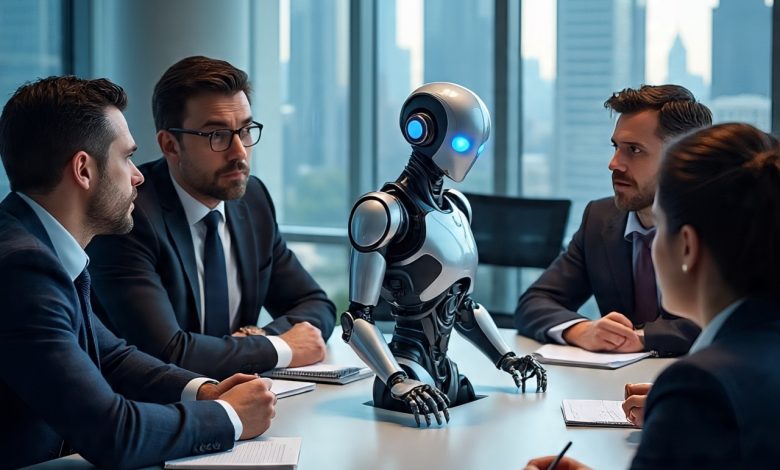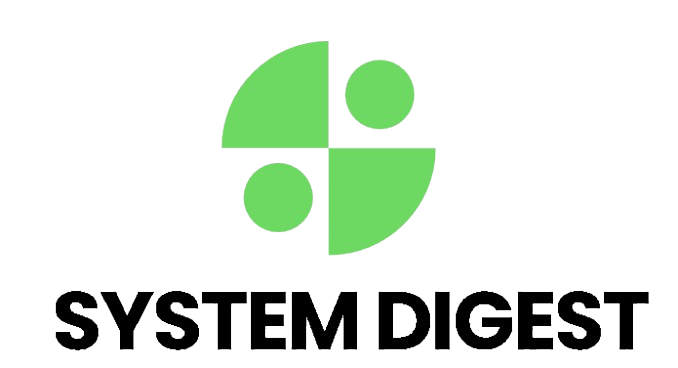
Artificial Intelligence (AI) is changing everything—from how we shop to how we work. But there’s one big question that keeps popping up: Will AI take over human jobs? This question isn’t just a hot topic; it’s something that affects our daily lives, our financial future, and even the kind of world we’re building for our kids.
So why am I writing about this? Because I’ve seen firsthand how AI is both helping and replacing tasks in businesses. As someone who’s worked closely with tech teams, marketers, and startups, I’ve had some eye-opening experiences. For example, I once consulted with a client who used AI to automate customer service. It saved time, but they also had to lay off three full-time agents.
That motivated me to dig deeper—and write this article to give you a clear, honest, and professional view of where we’re really headed with human jobs and AI. Whether you’re a student, a business owner, or just curious, this post is for you.
1. The Current State of Artificial Intelligence
AI isn’t just science fiction anymore. It’s everywhere: from your phone’s voice assistant to the software analyzing your bank transactions.
Here’s what AI is good at right now:
-
Automation of repetitive tasks (e.g., data entry, scheduling, email filtering)
-
Pattern recognition (e.g., fraud detection, health diagnostics)
-
Natural language processing (e.g., chatbots, language translation)
-
Machine learning that improves performance over time
But let me be clear: AI is narrow intelligence. It’s great at specific tasks but lacks emotional intelligence, ethical judgment, and creativity—traits that are core to human jobs like teaching, counseling, negotiation, and caregiving.
Quick Tip
If you’re in a job that requires empathy, critical thinking, or human touch—you’re still in demand.
2. Jobs Most at Risk from AI Disruption
Let’s get real. Some jobs are at risk. In fact, a 2023 report by Goldman Sachs suggested that AI could impact up to 300 million full-time jobs globally.
Here’s a table I created based on research and personal observations:
| Job Category | Risk Level | Reason |
|---|---|---|
| Data Entry Clerks | High | Easily automated using RPA (Robotic Process Automation) |
| Telemarketers | High | Replaced by AI-powered outbound bots |
| Bank Tellers | Medium | ATMs and mobile banking reduce need for in-branch staff |
| Customer Service Agents | Medium | Chatbots can handle basic support but struggle with complex issues |
| Journalists | Medium | AI tools can generate news briefs, but lack investigative depth |
| Medical Diagnosticians | Low | AI can assist but not replace human expertise in treatment decisions |
| Teachers & Psychologists | Low | Require emotional and social intelligence only humans provide |
Guide
Don’t panic. Instead of fearing AI, understand where your industry stands. If you’re in a high-risk job, start learning adaptable skills (e.g., tech, communication, project management).
3. Why AI Won’t Fully Replace Human Jobs
Now, this is the part that most news headlines don’t talk about: AI is not coming to wipe us out.
Here’s why I firmly believe that:
-
AI lacks moral judgment: It can’t replace judges, lawyers, or human rights activists.
-
No real creativity: Sure, AI can write poems or music—but only by remixing existing content. It doesn’t feel.
-
Human relationships matter: Try replacing a therapist or kindergarten teacher with a robot. The results would be cold and ineffective.
I remember consulting with a healthcare startup in 2022 that was using AI to screen patient data. While it made diagnosis faster, the final decisions still came from doctors. Why? Because trust and accountability still matter.
According to the World Economic Forum, while AI will replace 85 million jobs, it will also create 97 million new roles by 2025. These will be in areas like:
-
AI ethics
-
Machine learning oversight
-
Cybersecurity
-
Human-AI collaboration design
Pro Tip
AI isn’t replacing all jobs—it’s changing the job market. Focus on being the human partner to AI, not its competitor.
4. How to Future-Proof Yourself Against AI Disruption
If you’re reading this, chances are you’re wondering how to make your job safe from AI. That’s smart thinking. I’ve helped businesses and freelancers do just that by focusing on adaptability.
Here’s what I usually recommend:
a. Learn digital literacy
Understand how tools like ChatGPT, Bard, or Copilot work. Don’t fear them—use them to improve productivity.
b. Focus on “soft skills”
These include emotional intelligence, communication, adaptability, and problem-solving. AI simply can’t replicate these.
c. Upskill in high-demand areas
Cybersecurity, ethical AI, UX design, digital marketing—these fields are booming.
d. Think human-centered
Jobs that require ethical decisions, care, or complex strategy will remain human-dominated.
Here’s a quick comparison I made to help you understand:
| Skill Type | AI Strength | Human Advantage |
|---|---|---|
| Math Calculations | ✅ | ❌ |
| Writing Articles | ✅ (basic) | ✅ (deep/creative/thoughtful) |
| Empathy | ❌ | ✅ |
| Critical Decisions | ❌ | ✅ |
| Data Analysis | ✅ | ✅ (interpretation still human-led) |
Conclusion
So, will artificial intelligence replace human jobs? My honest answer: Some, yes—but not all. And certainly not the ones that make us human.
As someone who’s worked in digital tech and SEO for years, I’ve seen this shift happen gradually. I’ve also seen how businesses that embrace AI and empower their teams win—because it’s not about replacement. It’s about collaboration.
My goal with this post was to give you real, useful insight—not scare tactics or fluffy opinions. If there’s one takeaway, it’s this:
👉 The future belongs to those who are adaptable. Learn to work with AI, not against it, and your job won’t just survive—it’ll evolve into something even better.
FAQs
1. Will AI completely replace human jobs?
No, AI will not completely replace human jobs. While automation can take over repetitive and predictable tasks such as data entry or telemarketing, most roles that require creativity, emotional intelligence, ethical judgment, or complex problem-solving will remain human-centered. In fact, the World Economic Forum projects that while AI could displace 85 million jobs, it will also create 97 million new ones by 2025.
2. Which jobs are most at risk from AI?
Jobs most at risk are those with repetitive tasks that AI can easily automate. These include data entry clerks, telemarketers, and some customer service roles. Even journalists and bank tellers face medium disruption as AI generates news summaries and supports digital banking. However, roles in teaching, psychology, medicine, and counseling remain safer due to the human touch and empathy they require.
3. What kinds of jobs will AI create?
AI will lead to the creation of jobs in emerging fields. These include machine learning oversight, AI ethics, cybersecurity, data science, and human-AI collaboration design. Roles focused on integrating, monitoring, and regulating AI systems are becoming increasingly important as companies scale AI use.
4. Why can’t AI fully replace human workers?
AI lacks emotional intelligence, ethical reasoning, and genuine creativity. It can remix existing information but cannot invent entirely new ideas or provide empathetic care. Jobs that require trust, accountability, and human relationships—like teaching, therapy, negotiation, or leadership—cannot be fully outsourced to machines.
